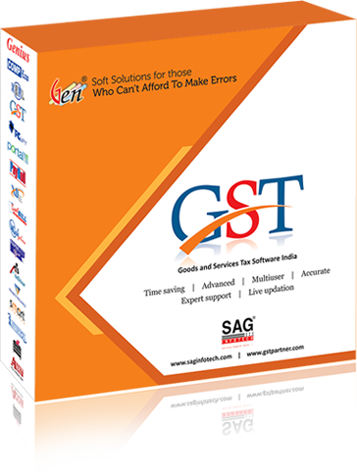Investors are wondering whether the GST Impact on Mutual Fund Exit Load.
And, the answer is: YES.
The recently announced FAQs by the Central Board of Indirect Taxes and Customs (CBIC) has become the matter of concern for many mutual fund holders and other as it mentions that the exit load will be liable to pay goods and services tax (GST). It has impacted the financial services heavily.
The FAQs clarifies tax applicability regarding various penalty, fees and charges like “exit loads” attracts charges by mutual fund firms in case of redemption, late payment charges for dues on outstanding of the credit card and charges in terms of additional interest for default case while paying loan installments.
Here are the details regarding how GST will affect the financial transactions and investments.
Impact of GST On Investors In Mutual Funds Industry:
The exit load charges are applicable when the investor redeems the money before mentioned time frame from the starting of the investment policy and the fund house renders the charges for early closure.
For instance, if the mutual fund is purchased by an investor on 1st January 2018 for one-year time frame with the condition of applicable exit load of 1%, and he withdrew the amount before a year. If it is withdrawn on 1st June 2018, the applicable exit load will be 1% on a scheme concerning net asset value (NAV). Therefore, 1% will be chargeable at the time of redemption when counting from the net asset value (NAV).
In mutual fund cases, expenses transacted by asset management companies (AMCs) are divided in the NAV concerning the scheme based on per day value. Although exit loads are not considered to be added with the total expense ratio (TER) and levied when redemption occurs on the basis of the scheme, the investor opted for and the time-frame of investment.
Commonly, in case of debt-based scheme of mutual fund investment, exit load are chargeable at a nominal rate or zero rates and if the redemption is to be done in a short period which is 7 to 30 day starting from the first day of the schemes.
Although, when it is about equity-oriented schemes, fund houses generally charge the exit load at a rate of 1% of the Net Asset Value if the scheme holder redeems within 365 days starting from the date of allocation.
In the recently issued FAQ, it is mentioned clearly that the exit load under mutual fund will be liable for GST. An official spokesperson and chief operating officer of a fud house mentioned, although, “the load will not increase for the investor as GST is included in the existing load levy. The scheme, on the other hand, will lose out as the exit load amount credited back to the scheme will be net of 18% GST.”
He mentioned the fund houses constituted a delineation for the GST authorities about this. They mentioned that the tax is required to take back as it is not the service which is rendered to the investor, it is just a deter to stop investors from early exiting. The request has not been formulated and the fund houses are required to pay Goods and Services Tax on exit loads, although, the tax will be added in the load already.
Impact of GST on Mutual Fund Investors:
The experts at GST Helpline India, mention there are various mutual fund schemes charging exit load based on redemption before 1 year. Although, the GST Impact on Mutual Fund Exit Load will not create a problem for investors because they do not frequently redeem the investments before 365 days.
It will impact the liquidity factor available under mutual funds offer. Further, it will assist to retain investments for a year and get the profits of high returns under the extended time frame of investment.
Bank Charges:
If we talk about Impact of GST on Credit Card, ATM Withdrawal & Cheque Book Issuance then services such as ATM withdrawals will not come under GST net because these are free services rendered by banks to the customers, although the late payment charges applicable on credit card bills outstanding and NRI buying insurance policies will come under GST levy.
In the issued FAQs on GST levy on insurance, stock brokers sectors, and banking, the revenue department has made clear that the transactions considering derivatives, securitization, forward and futures contracts are considered exempted from the GST levy.
The department has given clarification mentioning free services rendered by banks including ATM withdrawals and cheque book issuance to consider out of GST levy. The clear FAQs have removed the confusion of many regarding GST levy on banking and financial services.
Last month, on the approach of the Department of Financial Services, the revenue department has released exemption list under GST and the banks are notified by the service tax notice explaining free services rendered to the clients.
Under the Section 7 of the CGST Act, 2017, it is mentioned that the service supplied without acknowledgment of the ‘distinct person’/’related party’ are considerable as ‘supply’.
The FAQ mentions, “Therefore, where the services are supplied by a supplier without consideration to an unrelated recipient or a person other than a related or distinct person, the same would not amount to supply and not liable to GST.”






